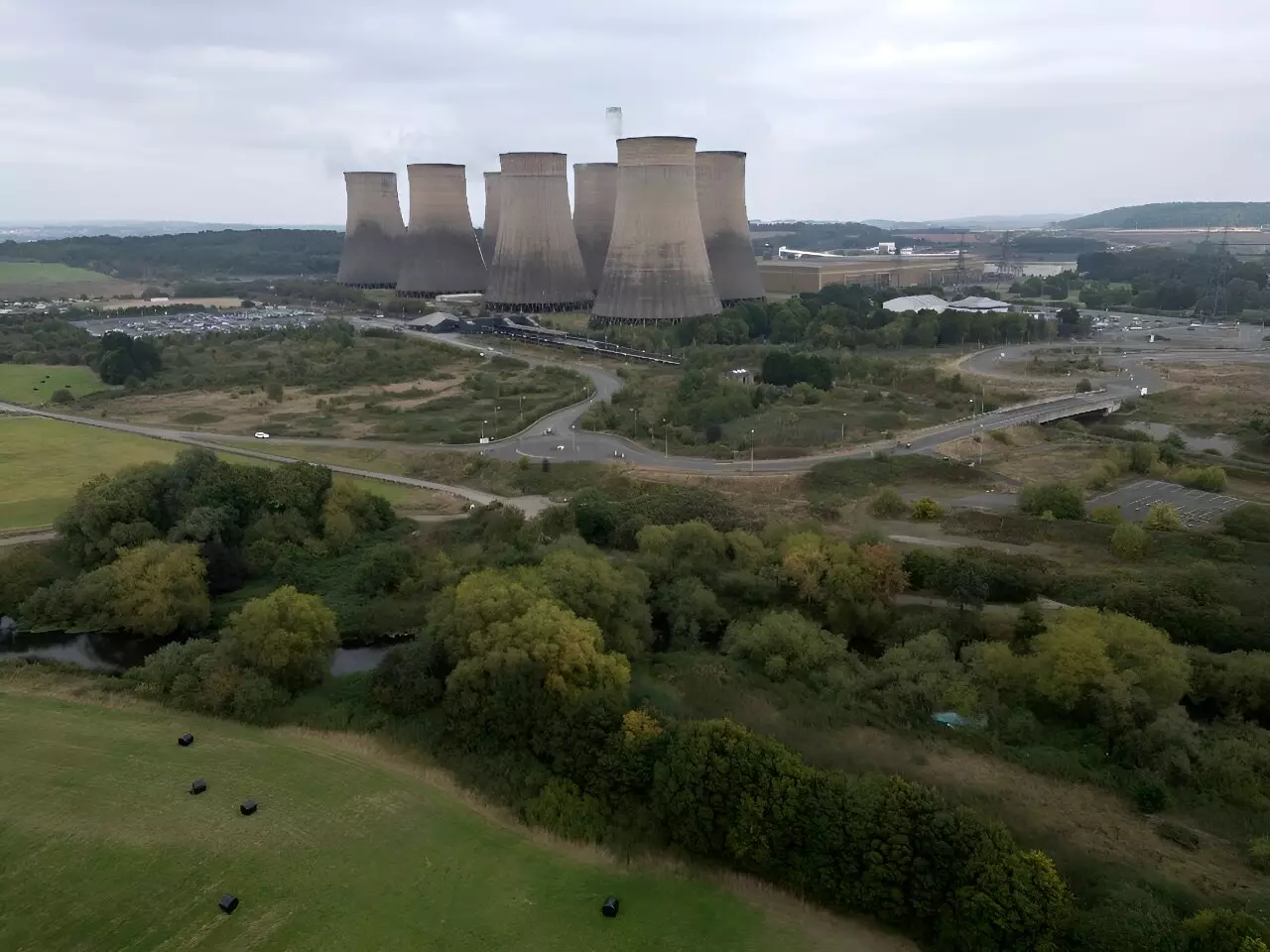The imminent closure of the Ratcliffe-on-Soar coal-fired power station represents more than the cessation of a single facility; it signals the culmination of over a century of reliance on coal in the UK. As the nation officially shuts its last coal plant on Monday, it strides into the forefront of global efforts to minimize fossil fuel dependence. This significant move positions the UK as the first country in the G7 group—that includes Canada, France, Germany, Italy, Japan, and the United States—to fully eliminate coal from its energy portfolio, a development that resonates with a sense of urgency to combat climate change and transition to renewable energy sources.
The Significance of Ratcliffe-on-Soar
Ratcliffe-on-Soar, a formidable component of the UK’s energy landscape for nearly 60 years, once held the capability to generate power for millions of homes. Once a critical player during the height of the Industrial Revolution, coal has gradually faded in the nation’s energy narrative. In 2013, coal was responsible for 38 percent of the electricity mix, but by 2022, this had plummeted to a mere 1 percent. This dramatic decline encapsulates not only policy changes driven by the need for greener energy but also highlights advancements in technology and public sentiment that favor sustainable practices over fossil fuels.
The statement from Energy Minister Michael Shanks emphasizes optimism as he highlights the potential for new energy jobs that could emerge from this transition. The closure prompts a reinspection of economic dynamics in regions historically dependent on coal-powered facilities, and while it marks the end of one era, it opens the door for diverse opportunities in renewable energy sectors.
Workforce Transition and Future Developments
With the closure of Ratcliffe-on-Soar, Uniper, the plant’s owner, has initiated a decommissioning period expected to last two years. During this time, measures are being taken to ensure job security for the 350 employees and contractors affected. Uniper’s commitment to redeploying staff where possible reflects a corporate responsibility and dedication to workforce welfare during this fundamental shift.
In lieu of the decommissioned site, plans for a “carbon-free technology and energy hub” are underway. This vision suggests a commitment to innovation and indicates a potential shift away from traditional energy dependency toward pioneering technologies that harness renewable resources.
The UK’s decision to abandon coal has garnered international attention, with environmental advocates urging other nations to follow suit. Doug Parr of Greenpeace UK aptly summarizes the global imperative: “Britain has set an example the rest of the world must follow.” Transitioning away from fossil fuels is not merely a national ambition, but a global necessity, as evidenced by agreements made at COP28 calling for a comprehensive approach to reducing overall fossil fuel consumption. In this regard, the UK’s leadership provides a tangible pathway for allied nations grappling with similar energy dependencies.
While the closure of Ratcliffe-on-Soar symbolizes progress, it also underscores the ongoing challenges looming in the sector. Many countries, including Japan and the United States, lack defined timelines for their own transitions, which may hamper collective goals for reducing carbon emissions. Thus, Britain’s strides towards a sustainable future offer vital lessons on the interplay of political will, public support, and technological advancement.
The history of coal in the UK is rich and complex, dating back to the 1882 establishment of the world’s first coal-fired power station in central London. This legacy has undeniably shaped Britain’s trajectory, contributing to economic prosperity and industrial growth over the decades. As the country embarks on a new chapter, it is essential to remember the historical context of this transition.
The UK’s ambitious plans include extensive investments in renewable sources such as wind, solar, and tidal energy—components crucial for a balanced and sustainable energy future. As of 2023, wind power accounts for a significant share of the energy mix, demonstrating that diversifying energy sources promotes resilience against future challenges of climate change.
A Vision for the Future
In summation, as Britain closes the chapter on coal, it does not simply erase its historical significance but rather transforms its legacy into a vision for a renewable, sustainable future. It is a moment of reflection, but also of anticipation, as communities and industries adjust to this monumental change. With the proactive steps being taken—both politically and socially—there lies the potential for an energy revolution that not only preserves economic stability but also cultivates an environmentally responsible tomorrow. The closure of Ratcliffe-on-Soar therefore stands as both an end and a beginning, a confluence of lessons learned and futures to be forged in unity toward decarbonization and environmental responsibility.


Leave a Reply